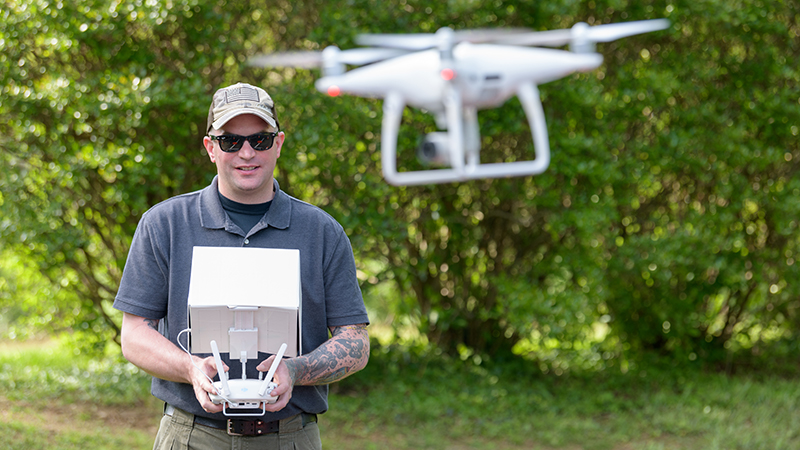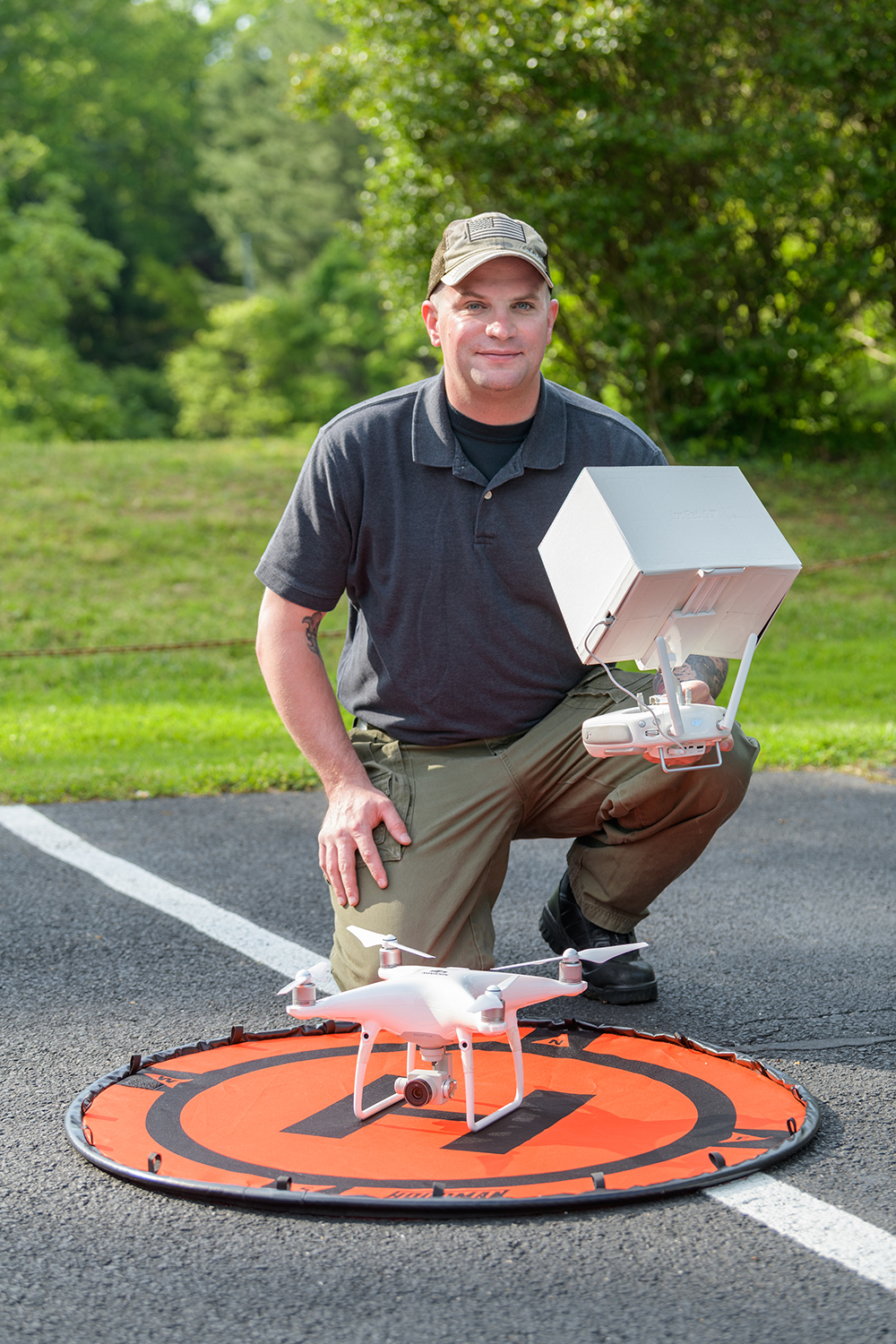
Drone program aids collision reconstructionist
Prior to enrolling in the foundational drone pilot training courses offered by the University of Delaware’s Division of Professional and Continuing Studies (UD PCS), Tavis Miller did not think there would be too much to learn about flying unmanned aerial systems (UAS). While his motivation to enroll might have been prompted by the need to earn an FAA Part 107 remote pilot certificate, which is required to legally fly a drone for commercial use, he quickly realized how much he did not know.
|
Professional Drone Pilot Training Academy
Ground School and FAA Part 107 Test Prep Foundations of Flight Customized On-site Training Sample Topics Aerial Mapping and Inspection Aerial Imaging Night Operations and Thermal Imaging Matrice M210 Operator Proficiency D3P™ Drone Program Manager |
“I went in thinking about how I often see kids flying drones and this can be fun to do,” said Miller. “The way they presented it showed me there is a lot more to it than I realized.”
Miller, who is a collision reconstructionist with a municipal police agency in Delaware, wanted to learn how to fly a drone so he can get a different perspective of the accidents he needs to assess. While he does not expect it to solve the causes of the collisions, the overhead view enables him to analyze the situation from another angle.
Miller’s first class, Ground School and FAA Part 107 Test Prep, provides comprehensive classroom training and prepares drone pilots for the Federal Aviation Administration’s airman knowledge test, which must be passed to earn the FAA Part 107 remote pilot certificate.
“Because of all the material to grasp, I was really nervous going into the exam,” said Miller. “But then I saw that everything they taught us was on the test. They didn’t provide us with the actual questions, but all of the information was applicable.”
Miller then enrolled in Foundations of Flight, which covers the basics of flying small unmanned aircraft systems. Topics include familiarization with various aircraft and system components, basic flight planning, safe flight deck setup and operations, basic flight maneuvers, emergency procedures, autonomous flight mode options, multi-aircraft mission design, and effective programmatic record keeping. Students become familiar with and receive individual hands-on flight time with a variety of aircraft systems. Miller appreciated the interactive format of both classes.

“I am more of a hands-on person than a classroom person,” said Miller. “Even with Ground School and FAA Part 107 Test Prep, there was a lot of class participation, which made it easier to grasp everything as opposed to just lecture and death by PowerPoint.”
The UD PCS Professional Drone Pilot Training Academy provides comprehensive UAS training to novice, intermediate and advanced drone users. In addition to Ground School and FAA Part 107 Test Prep and Foundations of Flight, intermediate and advanced programs are offered through customized on-site training. Sample training topics include Aerial Mapping and Inspection, Aerial Imaging, Matrice M210 Operator Proficiency, D3P™ Drone Program Manager Proficiency Training, and Night Operations and Thermal Imaging.
Miller enjoyed being in classes with people from a variety of fields such as architecture and construction. Other occupations that can benefit from the academy include, but are not limited to, first responders, investigators, insurance adjusters, realtors, reporters, filmmakers, producers, photographers, marketers, web designers, engineers, roofers, accident scene investigators, and site and structure inspectors.
“Even if you are just going to operate a drone on a recreational level, I recommend the classes,” said Miller. “It’s reassuring when someone not only teaches you how to do something the right way but the safe way as well. If you go through the checklist they taught us, it will make the risk of a flyaway drone pretty much next to nothing.”
For more information about UD’s Professional Drone Pilot Training Academy, visit pcs.udel.edu/drones, email continuing-ed@udel.edu, or call 302-831-7600.

